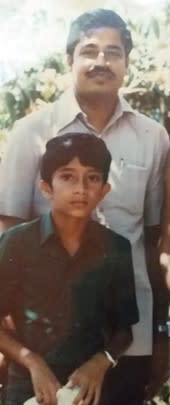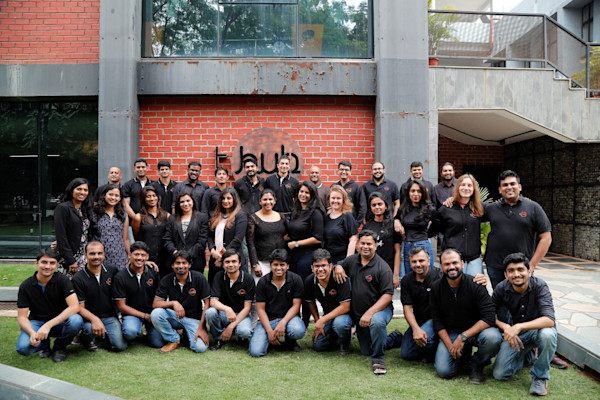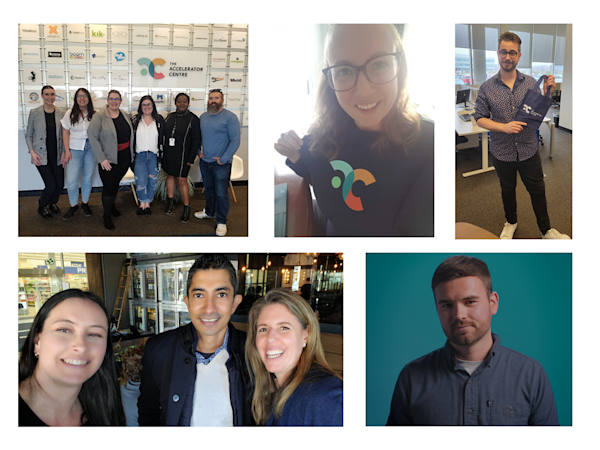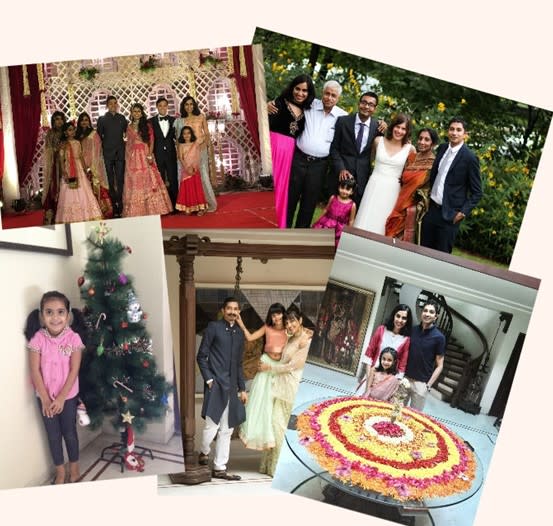Equity, Diversity, and Inclusivity
Conversations around EDI are often heavy. For leaders, it can be intimidating. For employees, it can be challenging. Especially when your client-base and stakeholder-base is large and multi-faceted. Add growing numbers to this equation, and soon you’ll find yourself meandering towards not wanting to say anything politically incorrect, and therefore staying away from hard conversations. Period.

Healthy harangues are better than fearful silence
Equity, diversity, and inclusivity (EDI) is a hot topic. And clearly, a necessary one if you want to evolve as a high-performing organization.
Conversations around EDI are often heavy. For leaders, it can be intimidating. For employees, it can be challenging. Especially when your client base and stakeholder-based is large and multi-faceted. Add growing numbers to this equation, and soon you’ll find yourself meandering towards not wanting to say anything politically incorrect and therefore staying away from hard conversations. Period.
All in all, this can lead to a stagnant culture, one that won’t help organizations deal with real problems. Systemic issues in any community (organizations included) have always been dealt with through open conversations and healthy debates.
My early lessons in the E in EDI
In the first 17 years of my life, I can only recount three times that I was admonished by my father. When I was 11, a friend of mine came over to voice her frustration about a specific group of boys that were bothering her in class. I spent a good half hour chatting with her—she, at my doorstep and me inside my living room. My father, on his way back from work, encountered the last minute or two of this episode.
Afterwards, he chided me for not having invited her in, for not having offered her a seat, and for not having offered her a snack. The sermon he gave me was about not having treated a girl right. And specifically, for not ensuring the comfort of a person who was sharing their perspective with me. It was a chide for me not having been hospitable, for not making her comfortable—specifically, comfortable enough to be able to voice her opinion without rebuke and to feel like she was being heard. It was also a lecture for me to be able to listen to, and appreciate another implicitly different perspective, in this case, a perspective coming from someone of the opposite gender- one that I was only just learning to get comfortable with at that age.

This was the 80s. (Don’t age me … yet!)
This was in Kerala, India, a state that is an outlier in India. A state known for its matrilineal liberalism, its high literacy (100%!), and its high degree of respect for women.
At the time EDI wasn’t a ‘thing’ (‘Thing’- Don’t roll up your eyes, stay with me).
But, even at that young age, a lesson registered somewhere in my juvenile brain.
An equitable start is a great leveler to understanding and appreciating each other.
What were the other two episodes of said paternal admonishment? That is material for another day.
T-Hub’s D in Diversity
Decades later, when I was given the opportunity to build T-Hub, I received another lesson in balancing diverse perspectives. Srinivas, my co-founder, and I, while we didn’t necessarily see eye to eye on many things, had one avenue where we aligned unequivocally, picking the best.
But then there’s this thing called a budget. And we didn’t have much.
We went out on a limb (and then some) to get good people. We hustled like entrepreneurs, managing operations, redefining strategy, and pivoting on roadmaps as we tried to build an organization. And building that organization took being at the hiring line of scrimmage every single day.
As an unspoken rule of thumb, we ended up optimizing for the best we could manage, with the budgets we had. As a result, we ended up taking what some might have seen as risks with a team that wasn’t “perfect” according to their job descriptions or convention.
We hired Dr. Shanta to move from New Mexico to head Innovation and manage programs for corporates.
We brought in two young (read “less experienced than the job description indicated”) Vikram and Pandu to take on massive roles to manage infrastructure that was beyond their experience.
For some roles, we brought in a wealth of experience (read ‘age’) in folks like Rama, Sharma, and Sudhir to manage operations and finance.
Sometimes, we moved on a good opportunity, like when a chance meeting with a friend in France connected us to Sarah who joined us to look after our community engagement, and a coffee chat in the cafeteria that brought us Deepthi to explore a role in managing international programs.
Juliane from Germany, Vitor from Portugal, and Daria from Russia reached out with their experience, chutzpah, and systematism respectively and joined us to bring the hustle and organizational capability that communities like the ones in India lacked.
Shruti, with little exposure to startups, but an aptitude towards community engagement came on board to manage our incubation community.
A makeshift arrangement with Pavan led to him ramping up his organizational skills and eventually grew into a terrific HR role.
An internship turned into a role for Aisheetha who ended up being our community champion.
This band of “there’s more than 24 hours in a day,” brothers Varun, Aditya, Thejus, and Aju brought in a high-octane, no-nonsense exuberance landing and expanding their roles ranging from product to projects to programs.
We also focused on bringing in different types of personalities.
Outspoken moments of buying into the vision got us Sanchita, Surendar, Chandana, Sandhya, Abhishek, Mohita, and Abhineeta- Each one donning a persona of their own and managing their tasks within operations, administration, marketing, media, and program delivery.
Skilled with a can-do’ attitude and not so much in the experiential realm were Jayant, Phani, Ajit, and Ankur who ended up looking after everything from tech stack to incubation to programs.
All in the trenches and no glamourous roles were donned by Vineet, Ankitha, Harish, Hemanth, Jashwanth, Raghavendra, and Prashanth who pretty much dove into every task given to them with earnest.
The geeks in their own rights, nothing but the tip of the icebergs of their functionalities to show for, Harshita, Sriram, and Neel managed tech and investments, but added shades of incredible depth in their tasks and nerd moments to every meeting possible.
Each new team member brought their own motley personality, divergent perspective, and then unseen value to the team.
And in building this foundational team, we also learned to welcome new perspectives, wish team members well when they wanted to start a new adventure, and to separate work from personal decisions.

Yup. Not the perfect team, when measured through scripted job descriptions.
But definitely the perfect team for an even-footed playbook of our then evolving roadmap.
Somewhat naturally, with a focus on leaning into everyone’s strengths, we ended up a diverse team—diversity across genders, diversity in age, diversity across nationalities, diversity across experience levels, and diversity across educational backgrounds.
So much diversity in fact, that as a leader I faced numerous challenges dealing with adversity in opinions. I was often caught questioning the need for people to be unnecessarily uncomfortable.
The method for my organizational buildout was frameworks and processes. But what enabled the diversity to not only work but to thrive was, my systems thinking approach married to a delegation of tasks and most importantly trust. Trust that enabled empowerment of every individual.
Paraphrasing Michael Jordan, “Its talent that wins games, but teamwork and hustle that win championships”. And that’s what the foundational team did-It truly put T- Hub and Hyderabad on the global map.
Best yet, the early line that we sold was, “if you work here today, you’ll look back at it in 2020 and say, “I was part of that journey”. A journey that will possibly end up reshaping one’s career. Every single member on that all-star team today dons hats ranging from CIOs to CEOs. The alum today is spread across the world.
The melting pot of diversity forced new ideas from unexpected quarters and solutions to problems that didn’t have answers when divergent thinking was absent. But most importantly, that diversity and the systems that supported each person to share their perspective forced people to think differently and work through situations that they found discomfort in. It’s this diversity that enabled us to win.
Today
A few ventures, investments, and sojourns later, I found myself back in North America. In coming to the AC, my goal was to look at our amazing team that served an even more amazing audience of entrepreneurs and provide for organizational methodologies that allowed the org to take what make it unique and scale it, globally. To do that, we needed the same systems thinking and team empowerment I knew well from T-Hub. We now have processes for new ideas and systems to pick the best ideas on the basis of merit. Most importantly we have pathways to consider diverse perspectives (where voices are heard, opinions are weighed in credence and without bias) and a platform for us to move on new ideas continuously.
We continue to painstakingly endure pivotal shifts from our institutionalized methodology of running programs, to that of being an organization that includes ideas and perspectives from the staff and from our founders.

It is this inclusivity embedded in our new roadmap that will give us consensus to take bold decisions in the best interest of founders. It is this spirit of inclusivity that will bring the transparency that we will need to foray into new territories of innovation and venture programming.
Our commitment to EDI at the AC
As a part of our journey and new roadmap, we set the intention of making EDI an official strategy that crossed the organization. The timing of this was immaculate. I was tasked with the rollout of a new vision for the organization in early 2021. No better time to make EDI a strategic pillar.
Then we brought in experts. We partnered with arguably the best there is! Michelle’s team at Empowered worked with us for about a year benchmarking our current state, talking to our team, our clients, our board, and our alumni. Together, we created a 2-year action plan for building the most inclusive startup ecosystem in the world. The initiatives within this plan span our internal team, our board, our mentorship model, and the types of programs we offer entrepreneurs. Beyond that, we’ve committed to the government of Canada’s 50-30 Challenge and to making our progress on the action plan public. In short, diversity, equity and inclusion are at the core of who we are, and we’re committed to making real changes that make tangible impacts for our team and our founders.

Looking back, I am grateful to have been born and raised in an environment where EDI was not a “thing” but rather a natural expectation and by-product of inherently inclusive and diverse values. I’m grateful that India and its tapestry of diversity taught me those values, and that my experience at T-Hub can be carried to my work here in Waterloo.
And I am grateful that entrepreneurship and its actors continue to humble me and inspire me to make sure we are looking at EDI in a meaningful way. No box-checking, or surface-level impacts here. My hope for our EDI initiatives at the AC is that we don’t shy away from having tough discussions, that we ask questions, listen with the intent to learn, and have patience with each other as we hear and learn more about each other’s experiences.
It is open, healthy conversations that have brought the race and our community this far. While we create an innovation hub that is equitable, diverse, and inclusive, let us learn to be exactly that.
Because at the end of it all, we can all learn something from listening to someone else, especially if we don’t agree with them.